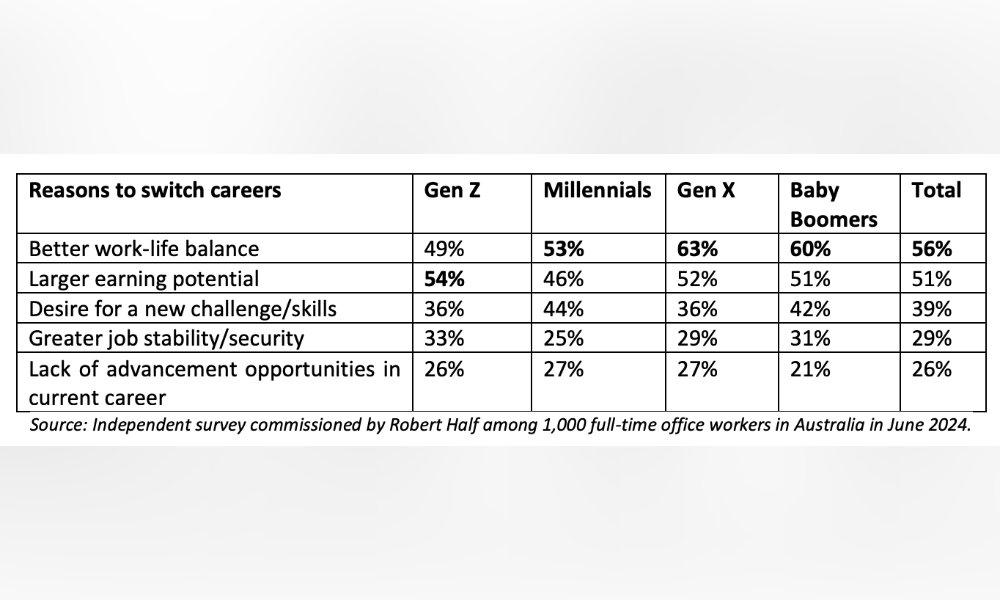
New survey shows more than half of employees considering career change

The pursuit for work-life balance is driving more than half of Australian employees to change careers in the next 12 months, according to a new survey from Robert Half.
The poll, which surveyed 1,000 Australian workers, found that 56% of employees are willing to change their careers in the next 12 months.
Nicole Gorton, director at Robert Half, said their findings show that the "traditional notion of staying in one career for life is fading."
"People are realising that many of their skills are transferrable and that a career change may offer them a fresh start and a better future," Gorton said in a statement.
The top reason for switching careers is better work-life balance, as cited by 56% of those planning to do so, according to the survey.
This is also the top reason as cited by more than half of Millennials (53%), Gen X (63%), and Baby Boomers (60%).
Gen Z employees, however, are more fuelled to change careers for larger earning potential (54%) than work-life balance (49%), the report found.
"Following the COVID-19 pandemic, many workers are reshuffling their priorities and want to give precedence to work-life harmony," Gorton said. "Meanwhile, others are feeling the pinch of inflation and stagnant wages and aim to pursue a career that offers better compensation and financial security."
With some industries being hit harder by the pandemic, Gorton further pointed out that others may want to pursue careers in more resilient industries.
"Some industries also have been hit harder than others by economic downturns, forcing the hand of workers to explore more resilient sectors with more secure long-term prospects like mining, professional, scientific, and technical services," she said.
Amid employees' strong plans to change careers, Gorton said it is important for employer to understand the "changing dynamics of the workforce."
"Offering competitive salaries, flexible work arrangements, and opportunities for professional development are crucial for attracting and retaining top talent, especially when these aspects of a role can be a reason to push staff out the door and into a new career path," she said.